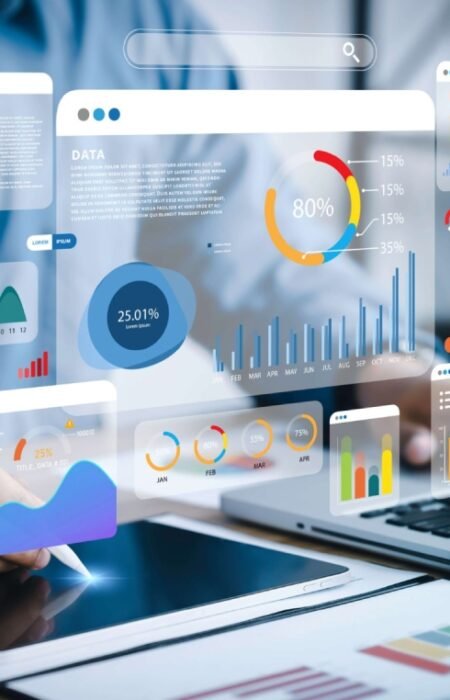Technology is evolving at a rapid pace, and its innovations are transforming our lives in ways we could have only dreamed of a few years ago. From artificial intelligence to advancements in healthcare, tech is continuously reshaping industries, improving efficiencies, and changing how we live, work, and interact. In this article, we’ll explore the top tech stories and innovations that are making waves in 2025 and how they’re changing our world for the better.
1. Artificial Intelligence: Revolutionizing Every Industry
Artificial intelligence (AI) continues to be one of the most talked-about and impactful innovations in tech today. In 2025, AI is making breakthroughs not just in automation, but in creativity, problem-solving, and even emotional intelligence. From AI-driven customer service chatbots to AI artists creating visual masterpieces, the applications are endless.
In healthcare, AI algorithms are analyzing patient data to predict diseases before symptoms even appear, enabling earlier interventions and improving patient outcomes. In business, AI tools are streamlining operations and enhancing decision-making by processing vast amounts of data at lightning speeds.
Key Impact: AI is dramatically improving efficiency and outcomes in sectors like healthcare, business, and even creative industries, pushing the boundaries of what we thought was possible.
2. 5G Technology: The Backbone of Future Connectivity
The rollout of 5G networks is one of the most significant tech developments in recent years. This high-speed internet is not only changing the way we download movies or stream videos, but it’s also transforming industries by enabling faster, more reliable connections for everything from smart cities to autonomous vehicles.
With 5G’s low latency and high bandwidth, businesses and consumers are now experiencing faster speeds than ever before. For example, remote surgery is now becoming a reality, allowing surgeons to operate on patients from across the globe using 5G-powered robotic tools. Additionally, the next wave of augmented reality (AR) and virtual reality (VR) experiences is only possible thanks to 5G.
Key Impact: 5G is enabling smarter cities, remote healthcare, and next-level entertainment experiences while paving the way for futuristic technologies like autonomous vehicles and IoT devices.
3. Quantum Computing: Unlocking New Possibilities
Quantum computing, though still in its early stages, is making strides toward becoming a game-changer. Unlike traditional computers, which process data in binary (0s and 1s), quantum computers use quantum bits, or qubits, that can exist in multiple states simultaneously, dramatically increasing processing power.
This technology has the potential to revolutionize industries like cryptography, pharmaceutical development, and climate modeling. Researchers are already using quantum computers to simulate chemical reactions that were previously too complex to model, paving the way for the development of new medications and materials.
Key Impact: Quantum computing promises to solve problems that were once considered unsolvable, particularly in areas requiring massive computing power, such as scientific research and cybersecurity.
4. Blockchain and Decentralized Finance: Shaping the Future of Finance
Blockchain technology, which underpins cryptocurrencies like Bitcoin and Ethereum, is evolving beyond its roots in digital currencies. This year, the focus has shifted to decentralized finance (DeFi), where blockchain enables peer-to-peer financial transactions without the need for intermediaries like banks.
Blockchain’s transparent, secure, and immutable ledger system is reshaping sectors like banking, insurance, and supply chain management. By enabling secure and fast transactions, reducing fraud, and eliminating the need for third parties, blockchain is improving the efficiency and accessibility of financial systems worldwide.
Key Impact: Blockchain is decentralizing financial services, providing greater accessibility, security, and transparency in finance, while also reshaping how we approach digital currency and global transactions.
5. HealthTech Innovations: A New Era in Personal Healthcare
Health technology, or HealthTech, has been a driving force in the transformation of healthcare, particularly after the pandemic. Innovations like wearable health devices, telemedicine, and AI-powered diagnostics are revolutionizing how we approach personal health and wellness.
In 2025, HealthTech is helping to empower individuals to take charge of their health with devices like smartwatches that monitor heart rate, blood oxygen levels, and even stress levels. Wearables that can measure blood sugar levels or track sleep patterns are providing users with real-time feedback and encouraging healthier lifestyles. Meanwhile, telemedicine platforms have made healthcare more accessible, allowing patients to consult with doctors from the comfort of their homes.
Key Impact: HealthTech is making healthcare more personalized, accessible, and preventive, leading to better overall health outcomes and increased focus on proactive care.
6. Autonomous Vehicles: Transforming Transportation
Self-driving cars, trucks, and drones are no longer just a futuristic concept—they’re becoming a reality in 2025. Thanks to advancements in machine learning, computer vision, and sensor technology, autonomous vehicles (AVs) are gradually being integrated into the transportation ecosystem.
This week, several major cities announced new initiatives to integrate autonomous delivery vehicles and self-driving taxis, aiming to reduce traffic congestion and improve safety. AVs are also expected to significantly reduce accidents caused by human error and provide greater mobility for elderly and disabled individuals who may not be able to drive.
Key Impact: Autonomous vehicles are changing the way we think about transportation, making it safer, more efficient, and more accessible for everyone.
7. Augmented Reality (AR) and Virtual Reality (VR): A New Reality for Work and Play
The adoption of AR and VR technologies is growing rapidly, with applications expanding beyond gaming and entertainment into education, healthcare, and business. AR and VR allow users to experience immersive environments and digital objects in real-time, enhancing both learning and creativity.
For example, VR is now used in therapy to treat PTSD and phobias, while AR is transforming industries like retail by allowing customers to try on products virtually before making a purchase. In business, AR is being used for remote collaboration, with employees interacting with 3D models and prototypes in virtual environments.
Key Impact: AR and VR are revolutionizing how we interact with the digital world, making work, play, and education more interactive and immersive.
8. Sustainable Tech: Innovations for a Greener Future
As concerns over climate change continue to grow, sustainable tech is emerging as a key focus for innovation. From solar panels and wind turbines to energy-efficient appliances and sustainable manufacturing processes, green tech is helping to reduce our environmental footprint.
This week, a new breakthrough in clean energy was announced, with researchers unveiling a more efficient method of storing renewable energy. Additionally, companies are focusing on using biodegradable materials and reducing waste in manufacturing to promote a circular economy.
Key Impact: Sustainable tech is driving the shift towards a greener, more sustainable future, offering solutions that address both environmental and economic challenges.
Conclusion
These top tech innovations are reshaping industries and transforming our lives in profound ways. From AI and 5G to quantum computing and sustainable tech, these advancements promise to make our world more connected, efficient, and sustainable. As we continue to embrace these cutting-edge technologies, one thing is certain: the future of tech holds endless possibilities, and it’s only just beginning.








No Comment! Be the first one.